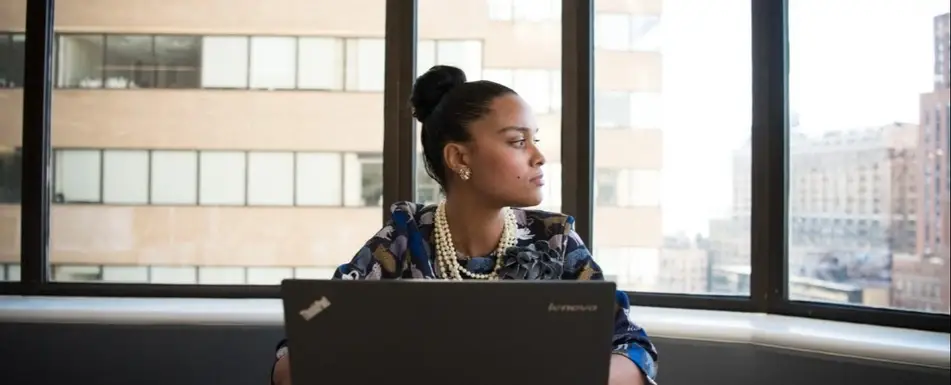How to Reframe Your Mindset When You Have the Office Blues

By now the holidays are over and the shine of a new year has mostly worn off. Resolutions are either in full swing or entirely off the rails: it’s officially back to business as usual at the office. Many of us are standing knee-deep in winter and, depending on location, already desperate for spring. Maybe that’s why March is typically when most people start to feel stuck at work.
Luckily, a simple shift in mindset can go a long way toward increasing happiness at work and at home.
Mind over matter
In months better known for short days and cloudy skies, it’s easy to forget how important it can be to look on the bright side. Training your brain to see the positive in even the most challenging of situations can have a dramatic impact on overall wellbeing. After all, energy goes where energy flows. This means that the more you focus on opportunities instead of adversities, the more good you're likely to find.
Cognitive behavioral therapists, who work to rewrite thought patterns and change maladaptive behaviors, suggest a regular practice of counteracting negative thoughts with positive ones. This means whenever a negative idea enters your mind—say, a deadline is moved up on a major grant proposal and you have to cancel dinner with your partner to stay late at work—challenge yourself to replace the angry thought with something positive.
Maybe that means reframing your frustration around staying late as an opportunity to get the proposal completed before the weekend, leaving more time for self-care and connection once Friday hits.
It certainly takes practice to make this part of a regular mindfulness routine, but experts agree it can lighten the load and create more space for positivity daily.
Embrace mistakes
Everyone likes to get things right the first go around since it saves on both resources and time. But some of life’s greatest lessons come from making major mistakes, and those in the know say reframing errors as opportunities can be one of the most impactful practices for inviting growth, change, and progress.
The book How to Fail at Almost Everything and Still Win Big offers a collection of essays on major mishaps, failures, and professional wrong turns, which ultimately result in the experience, connections, and knowledge necessary for making big moves. It’s the perfect primer for anyone attempting to make a shift in mindset when it comes to mistakes. And it’s also a great reminder that the path to success isn’t always a straight line.
People problems
Masters of mindfulness agree some our greatest teachers are actually difficult people. So rather than avoiding the annoying co-worker or attempting to work without the guidance of a challenging manager, engage with those with whom you struggle most and shift focus from what’s hard to what you can learn.
Dealing with problematic personalities can hold a mirror to our own strengths and weaknesses. This can be uncomfortable, but it can also be eye opening. Whether it’s developing patience or practicing empathy, partnering with those we usually disagree with can result in seismic shifts personally and professionally. They can be a reminder of what’s going right—and also a reflection of what we could stand to change. Difficult people teach us how to engage across differences and communicate with compassion.
Reclaim your commute
Remote work opportunities mean fewer people are embarking on lengthy commutes, but for those who spend hours in traffic or on the train, time spent moving between home and work can feel like a major drain. Thankfully, reframing and repurposing time in transit can also mean making more space for mindfulness, joy, and intention throughout the day. With a simple shift of perspective, wasted time can instead be filled with new meaning.
E-books and audiobooks can turn travel time into a learning opportunity when commuters read titles related to professional goals or new skills. Those taking the bus or train can tap into mindfulness apps and use the morning commute for meditation or the trip home for pressing pause while breathing deep.
Carpooling with colleagues can build community in and out of work, while at the same time providing space for informal brainstorming sessions about upcoming projects and important collaborations.
And those who always feel tight on time can reframe commuting as a chance to get a jump on the day—whether it’s responding to emails, prioritizing to-do lists, taking calls, or catching up on morning headlines.
Did you enjoy this post? There's plenty more where this came from! Subscribe here for updates.
Jill Nawrocki is a Licensed Social Worker and Returned Peace Corps Volunteer living in Brooklyn. She is an ultra runner, freelance writer and social justice warrior with a background in program management, direct practice, mindfulness and advocacy.


